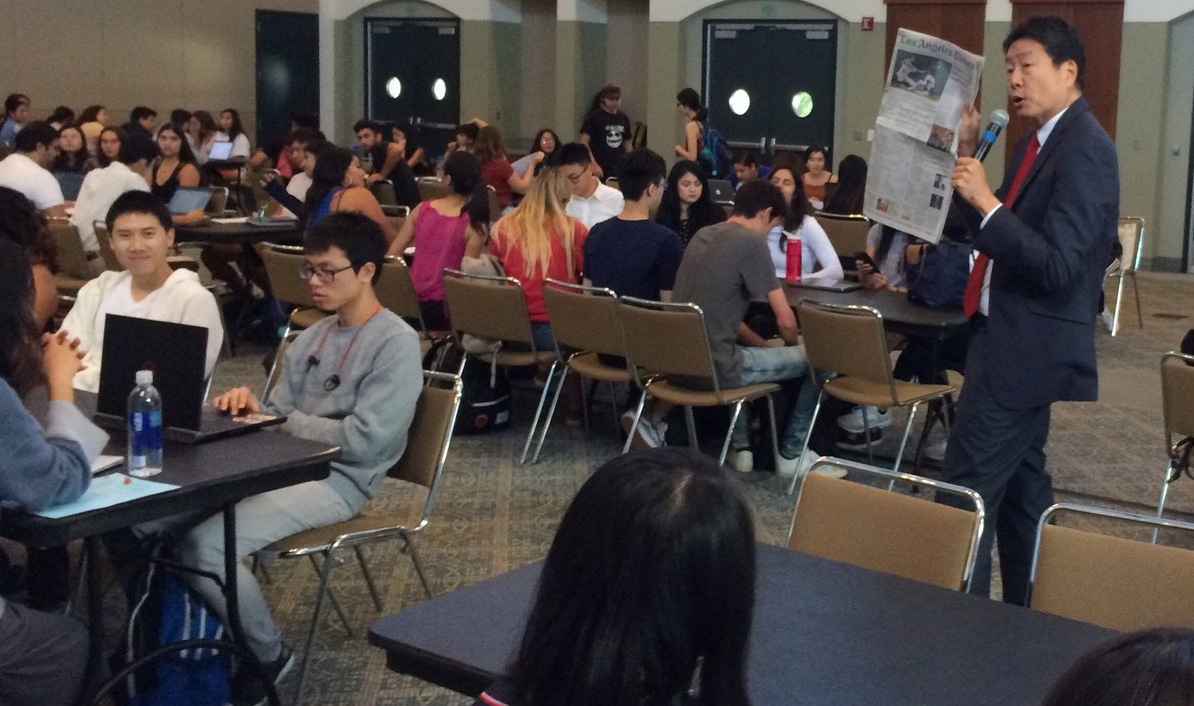Students Participate in Collective Bargaining Exercise at UCLA
Kent Wong | November 7, 2018
The UCLA fall quarter course Introduction to Labor and Workplace Studies: Class, Race and Social Justice gave 240 students the opportunity to participate in a collective bargaining simulation, the largest such exercise in UCLA history. This is the second year the course has been offered and taught by Labor Center Director Kent Wong and Institute for Research on Labor and Employment Director Abel Valenzuela.
Each of the students was assigned either a union or a management bargaining team, and they prepared individually and in their teams for several weeks. The student negotiations focused on three issues: wages, class size, and the expansion of charter schools within Los Angeles. All three are real-life examples drawn from the current negotiations between the United Teachers Los Angeles (UTLA) and the Los Angeles United School District (LAUSD). The LAUSD is the second largest school district in the country, with twenty-five thousand teachers. In a recent vote, 98 percent of teachers supported strike authorization. UTLA and LAUSD are now exploring fact-finding and mediation, but a strike is a strong possibility.
Of the twenty pairs of student teams engaged in the collective bargaining exercise, the vast majority came to a successful resolution. While a few decided to strike or lock out the teachers, most compromised on wages, class size, and the expansion of charter schools. Students were thoughtful and persuasive in their presentations, and many expressed how much they had learned about the collective bargaining process and the role of unions in the workplace.
Introduction to Labor and Workplace Studies is the core course for the Labor Studies minor. In the coming year, the UCLA Labor Studies major will be launched, the first and only major of its kind in the nine-campus UC system.
The UCLA Labor Studies program offers students an in-depth understanding of a broad array of issues related to labor and the workplace and prepares students for a variety of careers in labor relations, human resource management, law, domestic and international government, worker organizing, and economic forecasting. The program currently enrolls approximately 150 students and facilitates over 200 student internship placements annually. By critically analyzing the theory and practice of current workplace issues, students develop a deep understanding of the relationship between their education and society and how they, as college graduates, can transform the nature of work.


